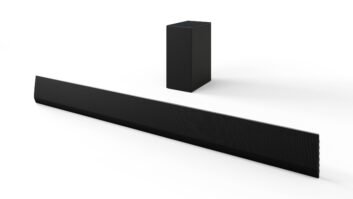Washington – CTIA-The Wireless
Association and major wireless carriers criticized Federal Communications
Commissions (FCC) chairman Julius Genachowski’s call to extend net neutrality
principles to the wireless industry and to expand the rules to prohibit wired
and wireless Internet service providers from discriminating against content or
applications that compete with their own.
In a statement,
the association warned that the outcome of Genachowski’s effort could be less
competition among wireless carriers and less handset differentiation, which
could accelerate the commoditization of handsets.
The Consumer Electronics Association (CEA), on the other hand,
took a more measured stand. Michael Petricone, senior VP of CEA, said the
organization “applauds
chairman Genachowski’s commitment to ensuring that Internet users have access
to the lawful content, services, applications and devices of their choice.”
Petricone also said CEA looks forward to “working with the commission
to develop common sense rules that preserve openness without undermining
incentives to invest in broadband infrastructure.”
Carriers AT&T and Verizon Wireless also criticized the
speech, but carriers Sprint and Clearwire voiced approval.
On Monday Genachowski called on fellow commissioners to establish
rules to apply the non-discrimination principle to wireless carriers as well as
to cable and landline-phone companies. The principle would prevent service
providers from blocking or slowing competing applications or services.
Genachowski also wants to turn informal network-neutrality
principles applied by the FCC to cable and landline-phone companies into
formal, enforceable regulations and to extend their application to wireless
carriers. Under the informal principles, service providers cannot prevent end
users from accessing lawful Internet content, applications, and services of
their choice, nor can they prohibit end users from attaching non-harmful
devices to the network.
Genachowski’s proposals wouldn’t prevent carriers from charging
more to customers who consume high volumes of data by using bandwidth-hogging
applications, such as video streaming.
At press time, he hadn’t provided a draft or summary of proposed
rules to other commissioners.
“The
rise of serious challenges to the free and open Internet puts us at a
crossroads,”
Genachowski contended in a speech. “We could see the Internet’s doors shut to
entrepreneurs, the spirit of innovation stifled, a full and free flow of
information compromised. Or we could take steps to preserve Internet openness,
helping ensure a future of opportunity, innovation, and a vibrant marketplace
of ideas.”
In response, the CTIA welcomed Genachowski’s willingness to apply
net-neutrality principles differently to wireless networks, whose data
capacities are more constrained compared with those of landline-telecom and
cable-TV operators.
Nonetheless, CTIA regulatory affairs VP Chris Guttman-McCabe
warned that net-neutrality regulations would reduce competition and innovation
in the wireless industry. “As a justification for the adoption of rules,
the chairman suggested that one reason for concern ‘has to do with limited
competition among service providers.’ This is at the core of our concerns,”
McCabe said. Compared to landline services, “the wireless industry is
extremely competitive, extremely innovative and extremely personal.”
“How
do the rules apply to the single-purpose Amazon Kindle?” Guttman-McCabe
continued. And how would the regulations affect efforts by Apple, Google’s
Android, BlackBerry, Firefly and others “to differentiate the
products and services they develop” for consumers,”
the VP added. “Should
all product and service offerings be the same?”
Verizon
Wireless and AT&T also opposed the extension of net-neutrality rules to
wireless.
In its statement,
AT&T said it is “concerned”
that “the FCC appears ready to extend the entire
array of net neutrality requirements to what is perhaps the most competitive
consumer market in America: wireless services.”
Imposing net-neutrality rules on wireless carriers is “a risky experiment with
American broadband investment,” the company said.
“To paraphrase a recent analyst comment, net
neutrality is rooted in an assumption that broadband networks are instantly
expandable, to an infinite extent, at little or no cost. To base policy
assumptions on such fallacies is to conduct a risky experiment with American
broadband investment,” the company said. “This is especially so with U.S. wireless networks,
which are facing incredible bandwidth strains, and which require continued
private investment at very high levels, and pro-active network management, to
ensure service quality for 270 million customers.”
On the landline side,
AT&T described itself as “early
supporters of the FCC’s current four broadband principles and their
case-by-case application to wired networks.”
The company also said that” despite any compelling evidence
of abuses that need correction, AT&T could also consider endorsing a fifth
principle relating to actions that are unreasonably discriminatory and that
cause material harm.”
Verizon agreed said any regulations would be difficult to
implement in wireless networks because mobile subscribers might converge on a
specific cell site or sites, particularly at events, and potentially overwhelm
the sites’ capacity.













